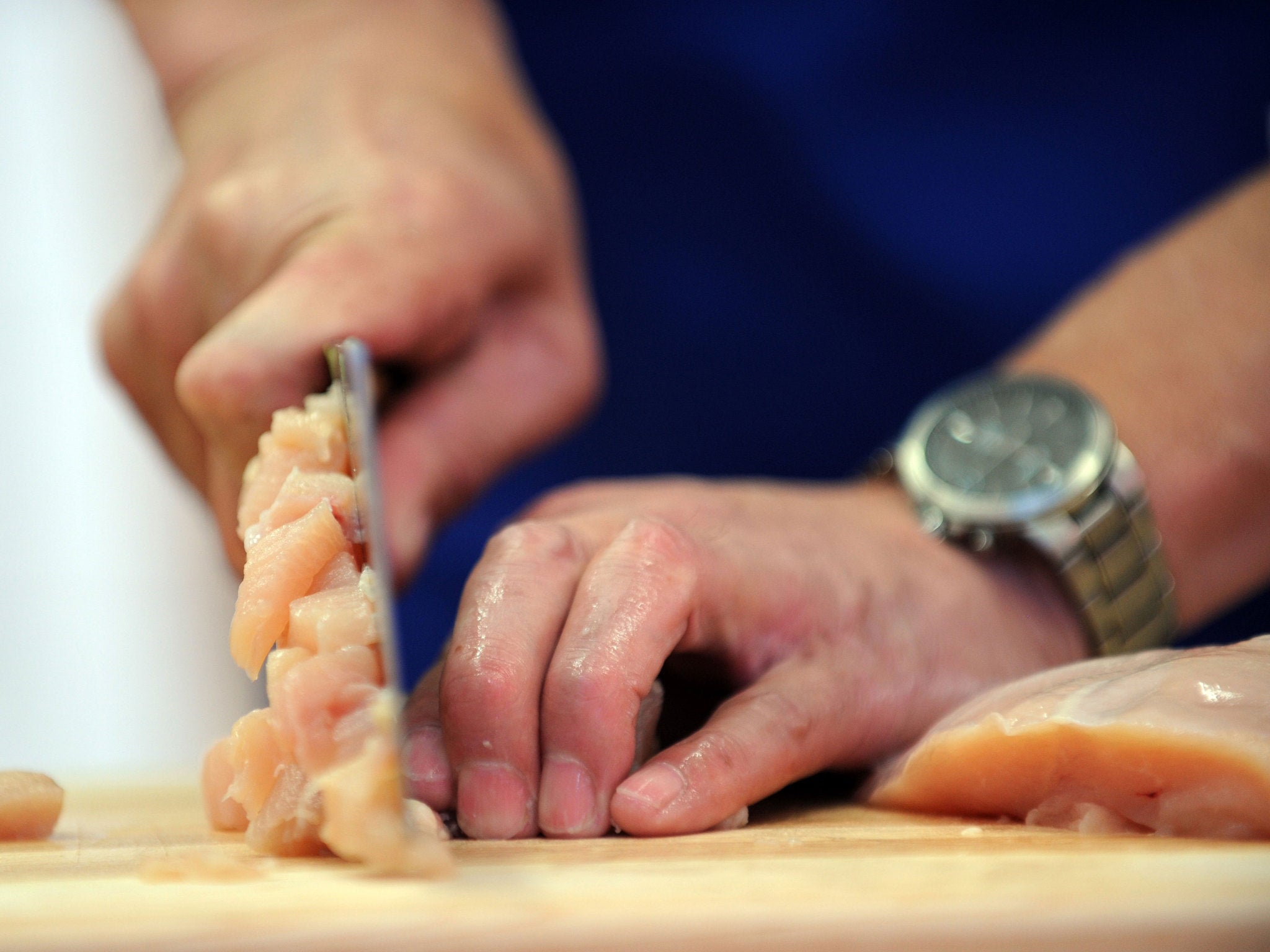Washing raw chicken 'can cause food poisoning', Food Standards Agency warns
Washing uncooked chicken can cause food poisoning

Washing raw chicken before it is cooked may cause food poisoning, health experts have warned.
More than two-fifths of people wash chicken when they prepare food, but the Food Standards Agency (FSA) has advised that the practice can spread bacteria on to hands, work surfaces, clothing and cooking equipment through splashed water.
Food poisoning is most commonly caused by the campylobacter bacteria, and affects more than 280,000 people in the UK each year.
Four out of every five cases are caused by contaminated chicken, according to the FSA - the independent government department responsible for food safety and hygiene in the UK.
While most people suffer relatively manageable symptoms including abdominal pain, severe diarrhoea and vomiting, food poisoning can sometimes lead to more significant health problems.
“Although people tend to follow recommended practice when handling poultry, such as washing hands after touching raw chicken and making sure it is thoroughly cooked, our research has found that washing raw chicken is also common practice,” said FSA chief executive Catherine Brown.
She added that Campylobacter "is a serious issue."
"Not only can it cause severe illness and death, but it costs the economy hundreds of millions of pounds a year as a result of sickness absence and the burden on the NHS.
"We are leading a campaign that brings together the whole food chain, which includes working with farmers and producers to reduce rates of campylobacter in flocks of broiler chickens and ensuring that slaughterhouses and processors are taking steps to minimise the levels of contamination in birds," she added.
Join our commenting forum
Join thought-provoking conversations, follow other Independent readers and see their replies
Comments